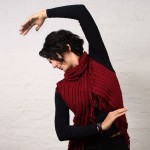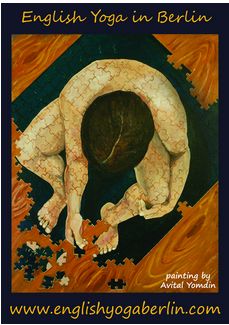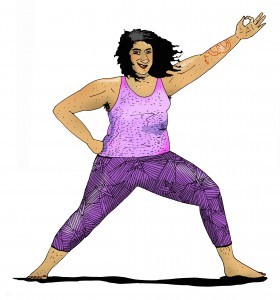
one could think of Paschimottasana as a ‘salute to the sunset’
Paschimottanasana = from Sanskrit, paschima meaning West or back of the body, uttana meaning intense stretch, and asana meaning posture
We are talking here about the seated forward bend. Traditionally we would be facing the East in the morning doing our Sun Salutations, which is why the back of our body is talked about as the West.
Paschimottasana in practice
At Pinelopi’s Hatha yoga classes in Kreuzberg, we have explored this pose deeply. We try through Paschimottanasana to stretch equally the entirety of the back of our body. Here we have a network of muscles and connective tissue that starts from our eye brows, over the head, down the back and legs, all the way to the soles of our feet. It goes by the name of backline of the body, or the superficial backline.
Introducing us to an insight she shared with us from the work of Leslie Kaminoff, Pinelopi guides us to become aware to where we feel the stretch most intensely. For many people it is the hamstrings, and for others the lower back or the upper back. For some, it is the back of the knees. We then work with the specific needs of our body, adjusting with props, to get an even stretch all over the superficial backline. This allows us to experience the grounding, release and surrender that is the core of this asana.
Paschimottasana as an experience, not an ideal shape
A specific example of that is my situation: due to my specific restriction of movement, I cannot get my abdomen in contact with the top of my legs. Does it mean I cannot stretch the “west side” of my body, my back? No, it does not mean that. How I stretch the back of my body will look completely different to how you do. Yet we will both be stepping into an experience of arising and transforming sensations, witnessing life unfolding through us.
“We offer Hatha Yoga classes with Pinelopi and Vinyasa yoga with Juli. Our yoga Kreuzberg Berlin classes are open for and welcoming to beginners. We also offer Berlin business yoga, pregnancy yoga, and private yoga classes, including for people struggling with chronic pain.”













